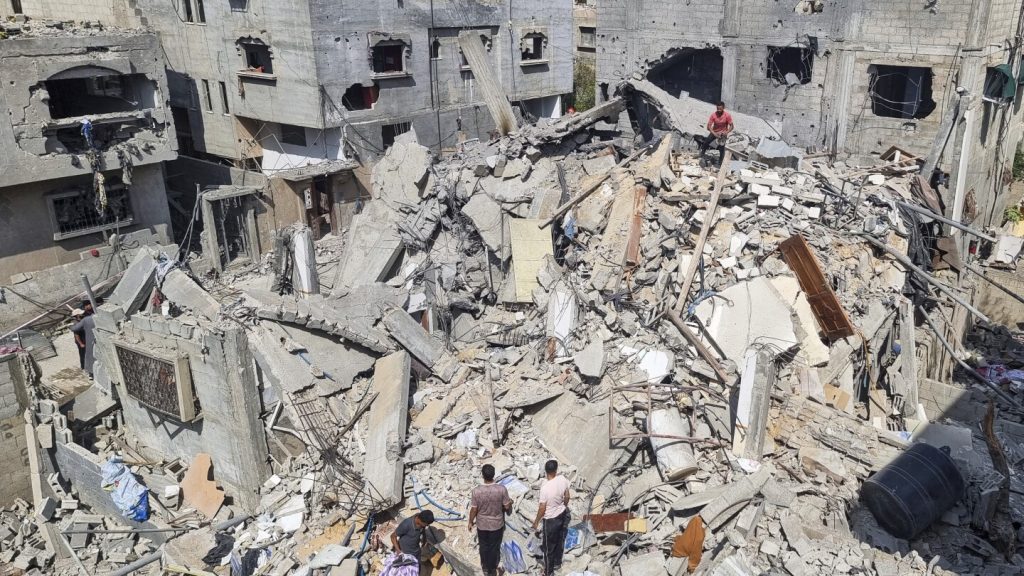Israel is determined to launch a ground offensive against Hamas in Rafah, Gaza’s southernmost town, in a plan that has raised global alarm due to the potential harm to over a million Palestinian civilians in the area. Despite efforts from the U.S., Egypt, and Qatar to broker a cease-fire deal, Israeli Prime Minister Benjamin Netanyahu stated that the military would move on Rafah with or without a deal to achieve its goal of destroying Hamas. Military plans have been approved, and troops and tanks have been moved to southern Israel in apparent preparation for the offensive.
About 1.4 million Palestinians, more than half of Gaza’s population, are currently sheltering in Rafah and its surroundings after fleeing their homes to escape Israel’s attacks. They live in densely packed areas such as tent camps, overflowing U.N. shelters, or crowded apartments and rely on international aid for food, with infrastructure such as sanitation and medical facilities crippled. The looming threat of a new assault places these civilians in a precarious position, as they face the possibility of another displacement or the brunt of a military operation.
Israel’s primary goal in the conflict with Hamas is to destroy the militant group’s military capabilities. Rafah is viewed as Hamas’ last major stronghold in the Gaza Strip, housing four of its battalions. Israel believes it must send in ground forces to topple these battalions, with the possibility of senior militants hiding in the city. The U.S. and Egypt have expressed opposition to Israel’s plan, citing concerns about the safety of civilians and the potential threat to strategic agreements. Egypt, a key partner of Israel, warned that any move to push Palestinians into Egypt could jeopardize its peace agreement with Israel.
Israel’s military has indicated plans to direct civilians in Rafah to “humanitarian islands” in central Gaza before the offensive. However, logistical challenges remain, and U.N. officials warn that an attack on Rafah could collapse the aid operation that sustains the population in the Gaza Strip. The majority of essential supplies enter Gaza through Rafah and Kerem Shalom crossings, making these vital lifelines unlikely to function during an invasion. The Biden administration has expressed concern about a major ground operation in Rafah, emphasizing the need for the safety and security of civilians in the town.
The decision to attack Rafah carries significant political ramifications for Netanyahu, who risks losing government support if he opts for a cease-fire deal instead. Some of his coalition partners have threatened to withdraw if a Rafah operation is not carried out, viewing it as a necessary move to defeat Hamas. At the same time, Netanyahu faces the threat of increased international isolation and friction with the United States if he proceeds with the attack. The delicate balance between domestic politics and international relations complicates Netanyahu’s decision-making process as he navigates the complexities of the conflict in Gaza.


